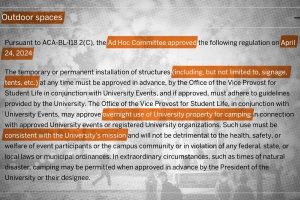Several states and conservative groups have filed lawsuits to block a new Title IX rule that aims to bolster due process rights for students accused of sexual misconduct on college campuses. The rule, which was issued by Secretary of Education Betsy DeVos earlier this year, has faced significant backlash from critics who argue that it undermines protections for survivors of sexual assault.
The Title IX rule, which is set to take effect on August 14th, establishes new guidelines for how schools must handle allegations of sexual harassment and assault. Under the new rule, schools are required to hold live hearings with cross-examination of witnesses, provide the accused with the presumption of innocence, and allow for an appeals process. These changes are intended to rectify what DeVos has characterized as a lack of fairness and consistency in previous Title IX investigations.
However, opponents of the new rule claim that it will make it more difficult for survivors to come forward and seek justice. They argue that the live hearing requirement could deter survivors from reporting incidents of sexual misconduct, as they may be subjected to aggressive questioning by the accused or their representatives. Additionally, critics have raised concerns that the rule could allow schools to ignore reports of sexual harassment and assault, leading to a culture of impunity on college campuses.
In response to these concerns, several states, including New York, California, and New Jersey, have filed lawsuits to block the implementation of the new Title IX rule. They argue that the rule violates federal law and puts survivors at risk of further harm. Additionally, several advocacy groups, such as the ACLU and the National Women’s Law Center, have also filed lawsuits challenging the rule.
Supporters of the new rule, however, argue that it is necessary to ensure that accused students receive fair treatment and due process rights. They contend that the previous Title IX guidelines, issued under the Obama administration, were overly broad and did not provide adequate protections for the accused. By establishing clear procedures for handling allegations of sexual misconduct, the new rule aims to strike a balance between the rights of survivors and the rights of the accused.
As the lawsuits make their way through the courts, the future of the new Title IX rule remains uncertain. Advocates on both sides of the issue will continue to push for their respective positions, highlighting the complex and contentious nature of addressing sexual misconduct on college campuses. Ultimately, the outcome of these legal battles will have far-reaching implications for how schools handle cases of sexual harassment and assault in the future.


